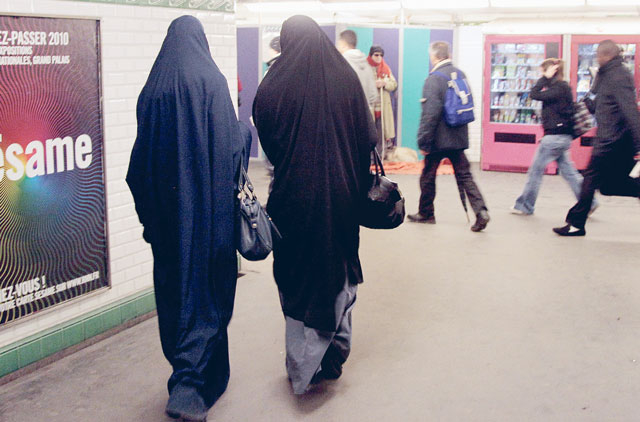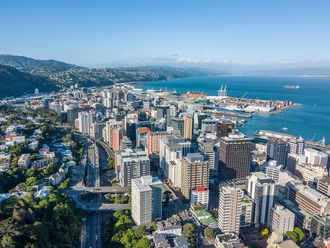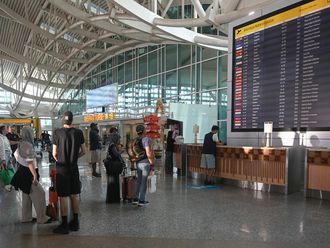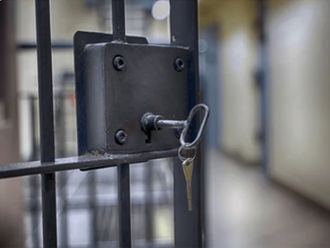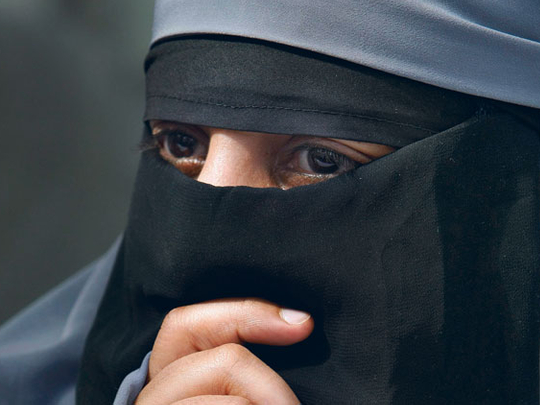
Moroccans have a bad reputation in Brussels. Understandably so, many Belgians will say after having experienced or heard stories about being beaten up and robbed (if a man) or hissed at, called "gazelle", and sometimes teased (if a woman).
Most of the time, these young men have emigrated from Morocco to Belgium aspiring to make a better life, but ended up with the disillusionment of finding no golden leaves on the great tree of Europe.
Collective imagination and geographic proximity contributed to emigration from North Africa to Europe, while material exploitation of European colonialism remains a latent source of Arab embitterment.
But this does not explain why Moroccan youth are more violent in Brussels than in Casablanca. Indeed, in Morocco, these punks are disowned for staining their national image and dismissed as not being a real representation of Morocco.
This is true. Dangerous are the times when stereotypes define other peoples. And there is no lack of lumping together the "Other" in the Western collective imagination of that violent terrorist polygamous medieval barbaric Arab, particularly since the terrorist attacks on the United States nearly a decade ago.
Another certainty is that these stereotypes will not go away by passing a law about how to dress. This is simply evading the real issue.
Belgium is now the first European country to pass a national law that prohibits covering one's face in public. The separatist Flemish party, Vlaams Belang, openly motioned to mention explicitly the veil in the text of the law.
Drafted and proposed by the liberal-right party, Mouvement Reformateur (MR), the text comprises two short articles and refers to the prohibition of wearing a mask or disguise.
According to group leader of the Flemish Green Party in the Belgian Parliament, Meyrem Almaci, of Turkish descent, this new law is purely "symbolic" since at the local commune level, Belgian police have been implementing legislation about wearing masks and disguises in public spaces since 2004. By May 2008, over 20 cases occurred in Molenbeek, a largely Moroccan-dominated neighbourhood in downtown Brussels.
The MR party introduced the national law proposition in 2007, which was passed unanimously by all Belgian parties on April 29, 2010. The law then passed Senate approval and now needs to be signed by the royal family and the incumbent government to be fully approved.
Ironically, the law was passed just after the Belgian government dissolved — again. National political coherence is hard to come by in this fragmented federal state but everyone agreed that no one should cover their faces.
Almaci explained that even though the law addressed a "marginal phenomenon" in Belgian society, the Green Party voted for the law because "contact with women wearing the burqa is extremely difficult". She urged applying "equal rights" and repeated "the need for female participation in society".
The law does not refer to the female Muslim veil but the allusion is obvious — hence the justification for human rights.
The human rights argument is a double-edged sword that instigates strong emotions and raises real complications with the legality of the law. Vehement Belgian opponents of the law, such as Vice-President of the Muslim Executive of Belgium (EMB), Isabelle Praile, who converted to Islam from Christianity over 26 years ago, claims that this law is both "unconstitutional" and "undemocratic" since it goes against the freedom of expression.
Praile said she has "never seen a burqa in Belgium before" and that the "foundations of democratic practices" are in jeopardy once "exclusive laws are passed that restrict rights".
She added this "new ideology reinforces fear of foreigners and stigmatises Muslims". This trend has grown since the terrorist attacks on the US in 2001, which have led to a cycle of violent responses from both Islam and the West.
"Some political parties have nothing else," said Almaci from the Green Party, and many would agree that the ambivalence of the law has been used as a political tool to gain votes.
"Political priorities", Praile said, have caused all parties across the spectrum to endorse the law. This political shift has been accentuated by a European move to the Right, which is usually defined as nationalist or patriotic, in more extreme forms as xenophobic, and in our times as "Islamophobic".
The overarching parameters being established by the Right were outlined in the well-to-do southern Brussels suburb of Waterloo by a leading member of the political bureau of the new Belgian Popular Party (PP) and candidate for the June 13, 2010, elections in the province of Hainaut.
Jean Zarzecki, a successful 75-year-old Belgian businessman of Polish origin, said: "We need to be firm on this issue." His argument is simple: We respect them; they should respect us.
Zarzecki claims "Belgium is a host country and finds it normal that people would choose to work and live here, but they must adapt to the culture of our country." As he proceeds, it becomes increasingly evident that for many Belgians, a new limit of tolerance is emerging.
"Islam must adapt," he continues and condemns the double standards imposed by the Arab world: Saudi Arabia does not accept a girl in a skirt to be driving alone, so why should we accept women wearing "blinders"?
Indicative of European exasperation with being tolerant and open-minded and receptive and welcoming, Zarzecki claims his party endorses a "secular society with the highest level of religious and philosophic tolerance possible", and asks: Why are there no more churches being built in the Muslim world (while we are expected to accept the construction of mosques in Switzerland), and why is Israel allowed to continue repressing Christians while building more Jewish colonies? These are not entirely non-sequiturs.
These are important questions that demand reflection and debate and dialogue but not a new law on how one dresses. As many defenders of the headscarf have asserted, once you start banning, you will not be able to stop. In the European case, imposing a ban on the burqa will exacerbate a phenomenon that hardly exists.
Then multifarious scenarios of state repression can be imagined: from detentions and torture in prisons to riots and sabotage in the streets. Conformity will come naturally or not at all; cultural diversity is preferable.
For many Moroccans in Brussels, cultural diversity is synonymous with social segregation. On Sundays, a mini Morocco emerges around the black iron Anderlecht slaughterhouse.
Walking through here is like being in an Arab souq, except that you're in a lower-end part of the capital of Europe. Vendors shout prices, selling clothes and shoes and belts, then come the smells of fruits and fish and meat, as well as all different kinds of drab and bright colours beneath the grey low sky of Brussels.
Two cousins from Nador, Morocco, are selling clothes. Yak, 35, is from Brussels and says "he does not want to bother others", but that this law will "worsen the situation". The present Muslim "malaise" will be aggravated by prohibitions against their faith.
He too mentions that he has never seen a burqa in Brussels. And the niqab is a very small portion of the Muslim minority in Belgium, which Yak says will be further ostracised and will fuel the extremists who support "wars of religions".
Yak's younger cousin "Red" is 22: "Don't be surprised if the situation blows up here!" What will happen when women wearing the veil are stopped and fined or detained and jailed for up to a week? "There will be riots."
When asked the same question, a Belgian convert to Islam, mid-thirties, sporting a blond beard along his jaw, said: "During the Iranian Revolution, fear was spread about women wearing the chador; now it's about the burqa and the Taliban."
At the Great Mosque of Brussels, on the corner of the Cinquantenaire Park in the centre of the European Quarter where all the EU institutions are found, a thousand people come to pray every Friday. The mosque was a gift from King Baudouin in 1967 to the Muslim community and houses the European Islamic Institute and offers Arabic courses.
Imam Abdul Hadi, an Egyptian from Al Azhar Mosque in Cairo, lectures about illness, suffering and patience. He talks loudly but this is not a political speech. The story he tells about the Companions of the Prophet (PBUH) can be found in children's books on street stands across the Arab world.
Upstairs, women are sitting behind a partition. Outside there are beggars asking for alms and boys selling SIM-cards for 5 euros. The Muslim "malaise" is visible in the furrowed brows and the severe scowls of men exiting the mosque. No one stops to answer questions.
Everyone is going back to their business. There will be more problems with the coexistence of cultural plurality but there will be no bombs coming from inflammatory speeches at this mosque.
And yet Muslim malaise is matched by European insecurity. National political parties are calling for increased public security but Europe does not know how to deal with massive immigration and rampant unemployment.
Looking for a scapegoat, the polemics behind the burqa is now the greatest test to contemporary social tolerance. As these limits are being demarcated, we are now confronted with the dangers of neo-Orientalism.
The warning alarm should be sounding: This is not the path to better relations between Europe and Islam.
Casualties of a misguided law
Belgium may be the first country to ban covering one's face in public but it is certainly not the only European state to be doing so. Motions to pass laws directly related to or implicitly referring to female Muslim clothing are prevalent throughout Western Europe.
Prior to the Belgian law passed at the end of April 2010, France had banned all religious symbols in public schools in 2004. In June 2009, President Nicolas Sarkozy stated that the burqa is not welcome in France and a subsequent bill is now being proposed.
In Denmark, Prime Minister Rasmussen from the centre-right echoed Sarkozy in January 2010 by saying that the burqa is out of step with Danish values. A veiled woman was not allowed to board a public bus when she refused to reveal her face to the driver.
In Italy, a Tunisian-born woman named Amel Marmouri, 26, was stopped outside a post office in Novara, northern Italy, in early May 2010, for wearing the burqa. She was fined 500 euros and will be kept at home now, according to her husband.
Also in Italy, the Northern League, allied to Berlusconi's centre-right coalition, has motioned to amend the 1975 national anti-terrorist law banning ski masks and motorcycle helmets to mention "garments common among women of the Islamic faith known as burqas or niqabs".
In Spain, at the end of April 2010, a Spanish girl of Moroccan origin named Najwa Malha was expelled from a public school in Pozuelo de Alarcon, Madrid, for wearing the hijab, on the grounds of maintaining secular education.
Back to Belgium, prior to the national law, and indicative of commune level legislation, the southern city of Charleroi banned the veil in public schools on the basis of providing secular neutrality for its citizens.
Stuart Reigeluth is editor of REVOLVE.


